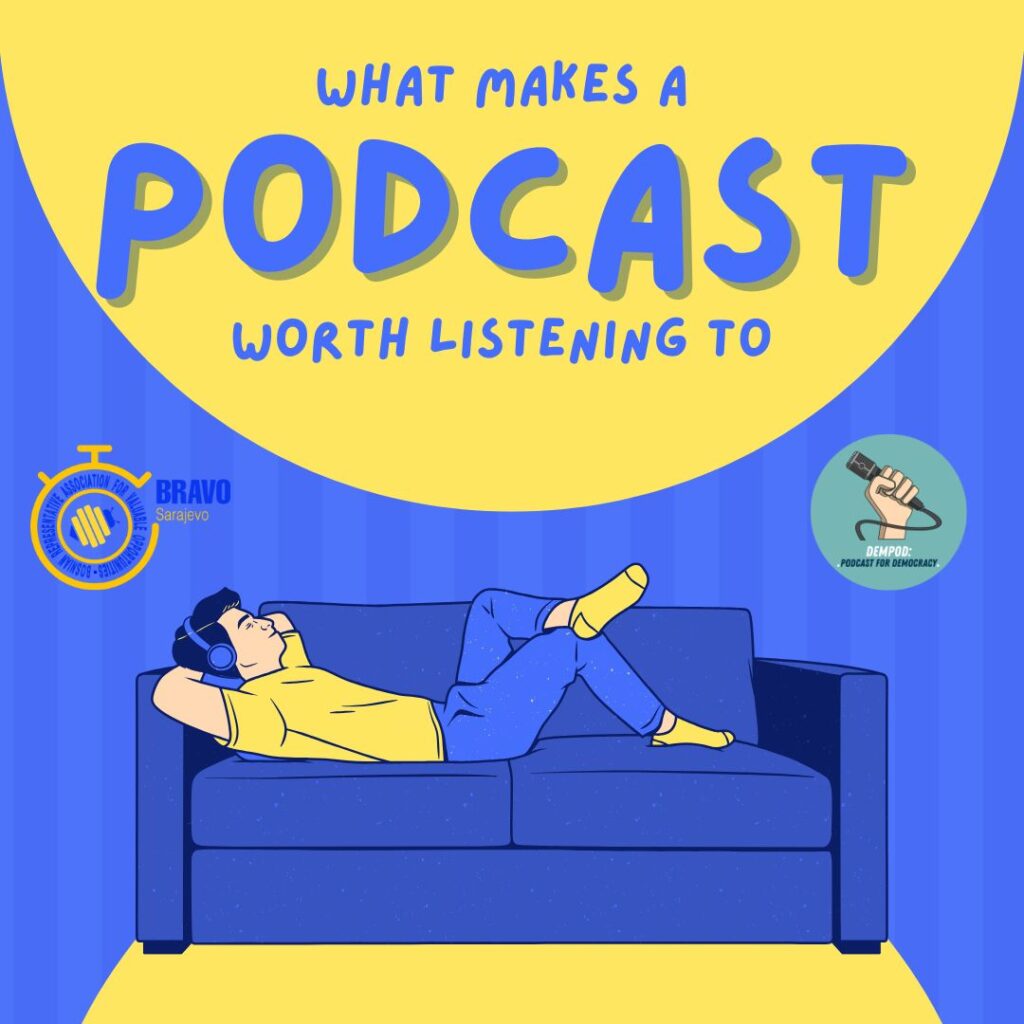
Podcasts are everywhere these days, and they’ve quickly become a favorite way for people to learn new things, hear different opinions, or just be entertained while they go about their day. But with so many podcasts out there, how do you decide which ones are worth your time? As part of the Dempod project, which helps young people use podcasts to get involved in their communities and take part in democracy, it’s important to know what makes a podcast stand out. Here are some simple things that make a podcast worth listening to.
A podcast is only as good as its host or the people speaking. Listeners are drawn to hosts who are real, passionate and knowledgeable. The best podcasts feel like conversations with people who genuinely care about the topic and want to share their experiences or insights. For Dempod, it’s about giving young people, especially those from disadvantaged backgrounds, the chance to share their voices in a way that feels authentic and relatable. When listeners feel like they can connect with the speaker, they are more likely to stay engaged.
While content is super important, how the podcast sounds also matters. People don’t want to listen to something with poor audio quality, where it’s hard to hear or there’s too much background noise. Clean, clear sound makes it easier for listeners to stay focused and enjoy the experience. For Dempod, aiming for decent audio quality with simple tools will help create podcasts that sound professional and are enjoyable to listen to.
One thing that keeps people coming back to a podcast is when new episodes come out regularly. Whether it’s once a week or once every two weeks, listeners like to know when they can expect a new episode. It helps build a routine, and when people know they can count on a podcast, they become loyal listeners.
Great podcasts make listeners feel like they’re part of a bigger conversation. This can happen when hosts ask for listener questions, get feedback on social media, or have open discussions on topics that affect different groups of people. It’s also important to include different voices, especially from people who might not always have a platform. Making sure young people from all over have a chance to share their ideas will make the podcast more inclusive and valuable for everyone.
A podcast should leave listeners with something they can take away and use in their lives. Whether it’s a new way of thinking, advice on how to get involved in their community, or just a fresh perspective, the best podcasts make people think and want to do something. The key is encouraging young people to take action, whether that’s learning more about their rights, getting involved in their local government, or simply using their voice to make a difference.
At the end of the day, a podcast worth listening to is one that’s interesting, real, easy to follow and gives listeners something valuable. For Dempod, the goal is to create podcasts that not only teach and inspire young people but also motivate them to take part in their communities and make a difference. By focusing on these simple but important elements, podcasts can be a powerful tool for youth engagement and positive change.
More about Dempod:
Disadvantaged young people are very frequently excluded from the media and they are not able to make their voice heard. This influences significantly their civic engagement and democratic participation. On the other hand, podcasts and vidcasts are a means of communication and expression that is becoming increasingly popular, it is low-cost to create and easy to be promoted.
However, podcasts have not been used until now in youth work as a means to increase the democratic participation of young people. The proposed project is aiming to achieve this goal by providing young people with the capacities and skills to create their own podcasts, by escorting them through the whole process of podcast and vid-cast creation; from looking to get inspired and creative in order to conceive the ideas and thematics of the podcasts, to actually recording, editing, and promoting their podcast among their peers. This will be achieved also through the empowerment of youth workers and the development of their skills so that they can assist the disadvantaged young people in the process and the development of the skills of the young people themselves top increase their democratic participation.
The project is first going to develop a methodology and training materials on how podcasts can be used as tool for civic engagement and then it is going to organize training seminars for youth workers and young people (both online in synchronous (webinar) form, and asynchronous (e-learning materials) form. The young people trained are going to create podcasts and vidcasts both in their national language and in English through international cooperation.
Moreover, a large-scale international festival is going to be organized in order to mainstream podcast creation as a means of democratic participation for the whole Europe.
